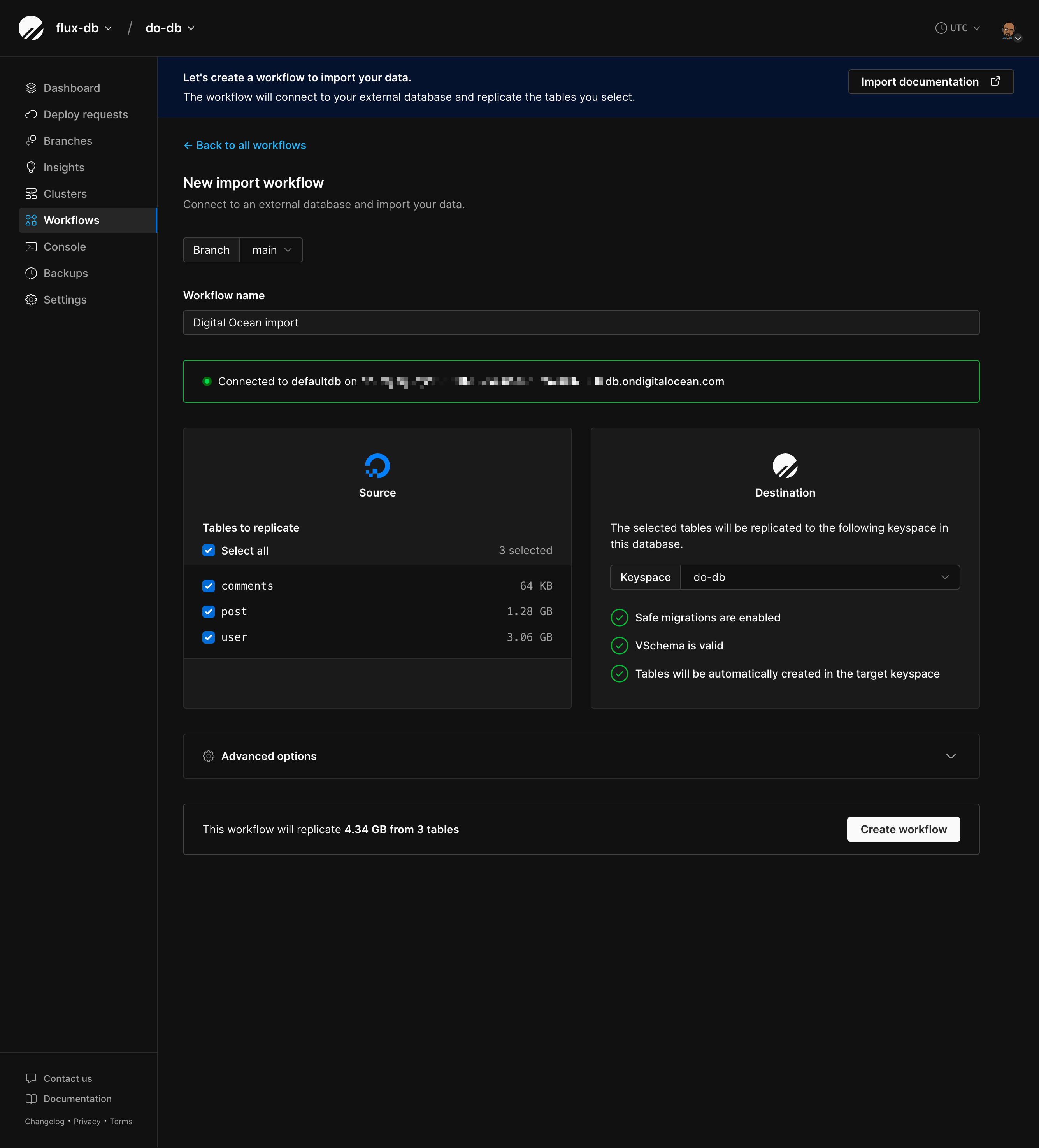PlanetScale features
The fastest way to understand how PlanetScale is changing the database landscape is to take a peek inside the product. The following features create a powerful developer experience that enables teams to develop quickly and confidently.PlanetScale Metal
When you deploy a PlanetScale database, you can choose from network-attached storage or Metal — locally-attached NVMe SSD drives. These blazing fast NVMe drives unlock unlimited IOPS, ultra-low latencies, and the highest throughput for your workloads while still running in the cloud (AWS or GCP).Non-blocking schema changes
With most businesses now operating online, downtime and maintenance windows are no longer acceptable. Not only does downtime hurt customer experience and trust, but even a small amount of downtime can result in thousands to millions of dollars lost for companies. Our non-blocking schema change workflow for Vitess means that you’ll never experience costly table locking or downtime when running schema changes. This is a fundamental piece of PlanetScale and something that we think everyone should have access to, so there’s no additional configuration required. Zero-downtime schema changes are baked into the product.Branching workflow
Our branching workflow paired with safe migrations is what enables non-blocking schema changes on your production Vitess database. Instead of applying schema changes directly to your production database, we let you create branches, which are essentially copies of your database. When you create a new branch off of production, you have an isolated copy of your database that you can use for development to make schema changes.

Revert a schema change
The final piece of the non-blocking schema change workflow is the ability to revert a recently deployed schema change without losing any data that was written since deploying.Scale with sharding + unlimited connections
With Vitess under the hood, we’re able to offer horizontal scaling via sharding with minimal application changes. PlanetScale allows you to break up a monolithic database and partition the data across several databases. This reduces the load on a single database by distributing it across several. Sharding can easily become a convoluted and hard-to-manage scenario, but because of our underlying architecture, we’re able to keep this sharding logic largely out of the application. So, from the application’s perspective, there only exists one database. Another scenario that companies with massive databases often run into is connection limits due to MySQL. With PlanetScale, we can support nearly infinite connections. Vitess offers built-in connection pooling, and we’ve built our own edge infrastructure into PlanetScale to ensure connection limits are never an issue. We generally recommend exploring horizontal sharding when your database exceeds 250 GB of data and you are beginning to feel some of the pains associated with large scale. Sharding is offered on our Scaler Pro plan. If you need assistance with setting up horizontal sharding, migrating to PlanetScale, or want enterprise-level SLAs, we offer this through our Enterprise plan option. Please reach out for more information.Insights
PlanetScale Insights is our in-dashboard query performance analytics tool. What’s unique about Insights is that you can track performance down to the individual query level.- number of times a query has run
- total time the query has run
- time per query
- rows read, affected, and returned
No downtime import tool
We understand changing database providers can be a pain, from dealing with downtime to complicated dumps and restores and endless compatibility issues. We built a database import tool to make importing to Vitess as pain-free as possible. With our import tool, you can connect your internet-accessible database to PlanetScale and begin the import process. During the import, your production database remains live, and both your PlanetScale and production databases are continuously synced. This means that as new or updated data hits your production database, PlanetScale will pull it in as long as the connection remains open. Once you’re ready to do the swap, the cutover happens in an instant. No downtime and no data loss.
Connect
A common task companies need to handle is extracting data out of their database for transformation and analysis. PlanetScale Connect provides you with an easy way to perform ELT. You can connect your PlanetScale database to Airbyte or Stitch, and select the destination from there. Both platforms support several data storage destinations, such as Snowflake, Google Big Query, and more.CLI
Nearly every action you can take in the PlanetScale dashboard can also be done with ourpscale CLI.
With commands for branching, deploy requests, backups, service tokens, and more, the CLI allows teams to work quickly and efficiently. You can use the CLI to extend PlanetScale into your own DevOps workflow with GitHub Actions, AWS CodeBuild, and more.

